US and Russia in partnership over Syria
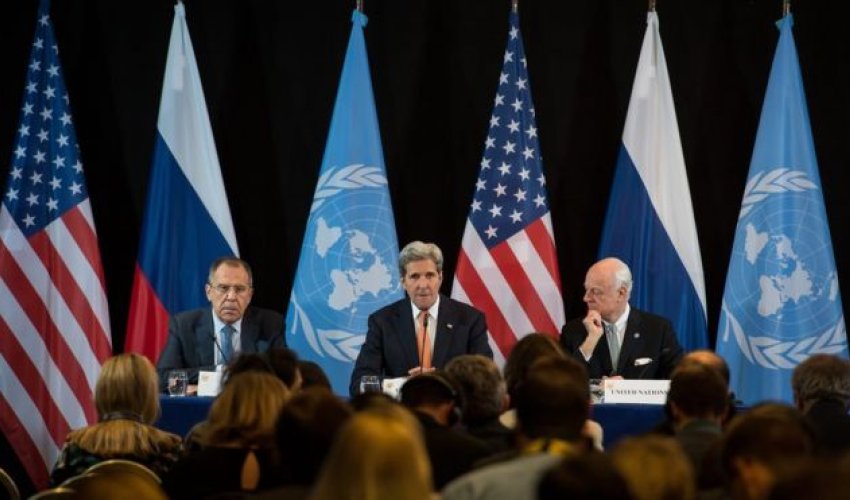
Syria's "cessation of hostilities" is making a difference - whatever the arguments about early violations, the level of violence across the country has fallen - and with this fragile modicum of progress, the United States and Russia find themselves in harness after years in which Syria was a forum for their rivalry.
"My worry is that it is the Russians making the weather," says Lieutenant General Sir Simon Mayall, senior Middle East adviser at the UK Ministry of Defence until last autumn.
"It was in their gift to offer a ceasefire on behalf of the Assad regime. That slightly worries me in a part of the world where the Americans have been the guarantors and the people who make the weather."
Following on from the Munich agreement of earlier this month, Russia and the US have become co-chairs of the International Syria Support Group working parties dealing with the implementation of humanitarian supplies, as well as the deal under which President Bashar al-Assad's forces and groups of the "non-terrorist opposition" are meant to stop shooting at each other.
President Bashar al-Assad
Born on 11 September 1965, second son of President Hafez al-Assad
Trained in ophthalmology in Syria and London
Brother Basil died in a car crash in 1994
Succeeded father in June 2000, aged 34
Married British-born Asma Akhras in December 2000
Won third term in office in June 2014, in an election dismissed as "a farce" by some, with 88.7% of votes cast in government-controlled areas
Both powers have worked hard to deliver this deal, and both now have a vested interest in its success.
"They are co-owners, insofar as the Russians respect the political process, and do apply pressure on Assad to stop bombing and take the process seriously," says Karin von Hippel, until recently a senior State Department official dealing with US strategy against the so-called Islamic State (IS) group, and now director general of the Royal United Services Institute think-tank.
Washington regards rapid progress towards political talks between the Assad government and the High Negotiations Committee (HNC), an umbrella group of his opponents, as essential.
Russian airpower
But privately officials are nervous, both about Russian attempts to brand any group that has ever co-operated with militant elements like IS or the al-Qaeda-affiliated Nusra Front as "terrorist" and, therefore, ineligible to take part in, or make any significant move towards moving President Assad off the political stage.
As the US has pressed ahead with its Russian partners, the whispering has started in London or Paris about how John Kerry, US Secretary of State, has allowed himself to align with a Russian plan to keep Mr Assad in power indefinitely.
The US has conceded publicly that the Syrian leader can stay "for now", and it's clear also that they have used considerable pressure to compel their allies to go along with the Munich agreement.
In the run up to Munich, both Syrian opposition and European sources were saying that Mr Kerry had threatened the HNC with a complete aid cut-off unless they went along with the peace process.
As Syrian government and allied forces, backed by Russian airpower, advanced north of Aleppo early in February, both Turkey and Saudi Arabia looked set to intervene in defence of rebel groups they have been supporting.
On 11 February, for example, Saudi MoD spokesman Brigadier Ahmed al-Assiri, said his country had taken a "final" and "irreversible" decision to send ground troops to Syria in order combat the so-called Islamic State. Turkish forces, meanwhile, were shelling Syrian Kurdish groups, and were accused by Russia of preparing to invade their southern neighbour.
Syrian partition?
This mid-February crisis, which could have put Russian forces supporting President Assad on a collision course with those of Nato-member Turkey or seen a ground push into eastern Syria by the Saudis passed, thanks to US pressure on its allies.
Speaking to journalists on Monday, Brigadier al-Assiri said: "If there is any consensus around ground troops in Syria, we will be in the front line."
Instead of sending ground troops, Saudi Arabia has, for the moment, contented itself with deploying a handful of jets to Turkey to carry out strikes on IS.
The degree to which the fight against IS remains apart from, or linked to, the wider question of peace in Syria is one of the many factors complicating the present picture.
Some in Washington have argued that advancing on the militant group's de-facto capital, Raqqa, is a higher US national security interest than the removal of Mr Assad.
The Munich agreement, which effectively buys quiet with many of Syria's opposition groups, so that the US and Russia can focus their strike power on IS and the Nusra Front, fits neatly with such thinking.
"Assad has managed to make it a binary confrontation between the state and 'the terrorists'," says Lt Gen Mayall.
So what happens if the political process stalls or President Assad's forces are found to be breaking the truce regularly?
Russia's UN envoy has suggested that pressure would be brought to bear on the Syrian leader. But speaking to senators in Washington last week, Mr Kerry referred to "Plan B" options. "It may be too late to keep it as a whole Syria," he suggested, raising the spectre of partition.
Many in the Syrian opposition argue that the US really has no leverage over Assad and that his government could be quite happy with partition.
(BBC)
www.ann.az
Similar news
Similar news
























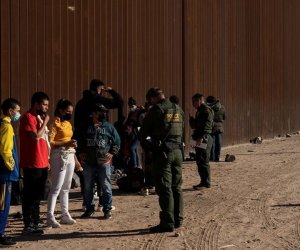
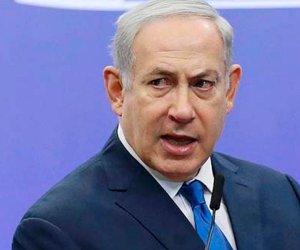
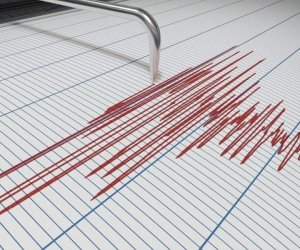

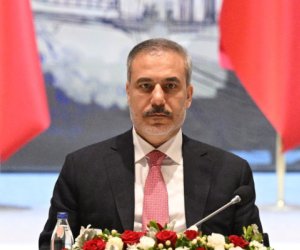

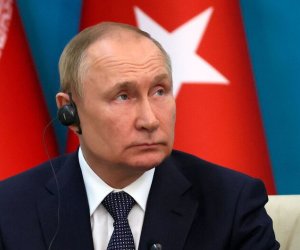
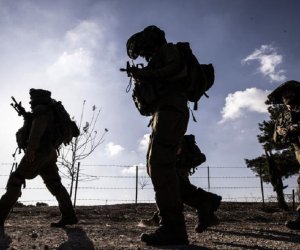
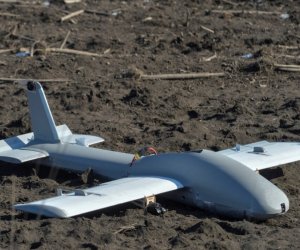



 Photo
Photo 



 Video
Video 

